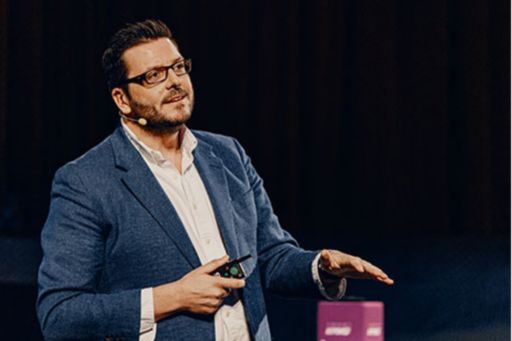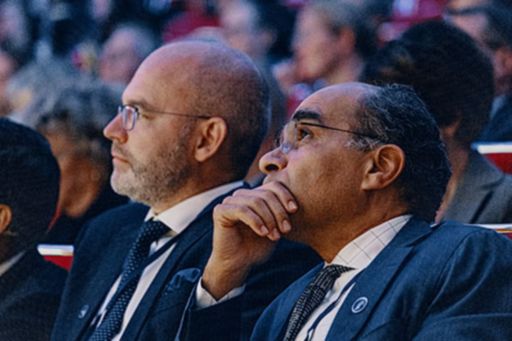The KPMG Strategy Forum has become an annual tradition in which leaders and experts from Finland’s best-performing companies learn and share insights on the latest business issues. Our theme for 2019 – “The End of Competitive Advantage” – sparked lively discussion, both inside and outside the Amos Rex auditorium.

Inflection points will happen – instructions on how to spot them
According to Columbia University Business School Professor Rita McGrath, companies must learn to recognize the early warning signs of disruption. Spotting paradigmatic shifts, which she calls inflection points, before they happen is critical – even when companies are performing well. Because inflection points typically incubate over time, business leaders that recognize these shifts can assess the impact of disruption and pivot when needed.
Citing examples of both successful disruptors and companies that missed major shifts, Rita suggested that businesses observe trends in broader competitive arenas rather than just their own industries. She encouraged companies to track leading indicators to predict future performance rather than lagging or current ones. She implored executives to surround themselves with diverse perspectives and to listen to those who are closest to customers on the outside edges of organizations because “snow melts around the edges.” Yet she warned of the dangers of reacting too strongly and too quickly. Instead she recommends that companies place small bets in order to turn disruption into advantage.

Rita McGrath is a best-selling author and a world-renowned thought leader in strategy. Following the Strategy Forum event, KPMG had the pleasure of helping Rita launch her new book, Seeing Around Corners: How to Spot Inflection Points in Business Before They Happen, at a live webinar broadcast to global viewers.
The customer experience – a path to differentiation and growth
Nathan Beaver, a Partner in KPMG’s global Customer & Digital practice, highlighted the importance of customer experience as a major source of differentiation. He argued that the customers of today are more connected, empowered and demanding, seeking instant access, accelerated innovation and seamless experiences. Companies that can deliver these types of customer experiences are rewarded with significantly better sales and profitability growth than those which cannot. Nathan suggests that building excellence in customer experience requires thinking in terms of segments, needs and customer journeys – not functions. Companies should embed the Six Pillars of Customer Experience Excellence into their organizations:
- Personalization – using individualized attention to drive emotional connection.
- Integrity – being trustworthy and engendering trust.
- Expectations – managing, meeting and exceeding customer expectations.
- Resolution – turning a poor experience into a great one.
- Time and Effort – minimizing customer effort and creating frictionless processes.
- Empathy – understanding the customer’s circumstances to drive deep rapport.

Engaging customers digitally in the front office is no longer enough. Nathan argues that businesses should digitally connect the entire enterprise from the front to the back office around the customer. Such a Connected Enterprise can help create holistic customer experiences, accelerate customers’ digital and offline engagement, and build a path to differentiation and growth.

Whether you are looking to capture new growth or merely to listen to inspirational experiences from renowned thought leaders, we always have something truly unique for you at KPMG Strategy Forum. Stay tuned for the next KPMG Strategy Forum on September 1, 2020. In the meantime, KPMG Finland’s Global Strategy Group would be happy to support your organization and executive teams in developing innovative strategies and customer experiences that help you build and sustain advantage in the face of disruption.
Bozorg Amiri
Partner, Advisory, Global Strategy Group
KPMG Suomi

